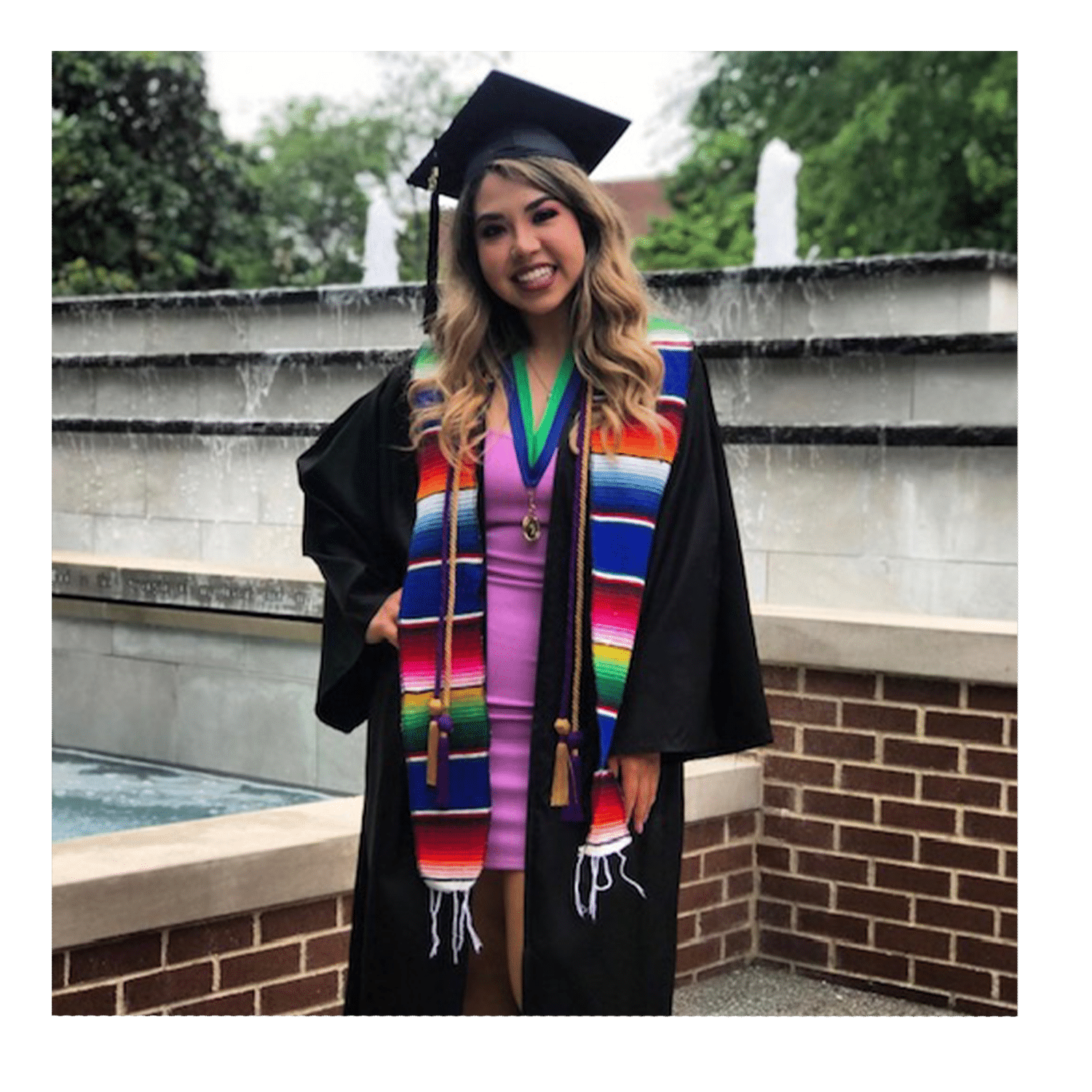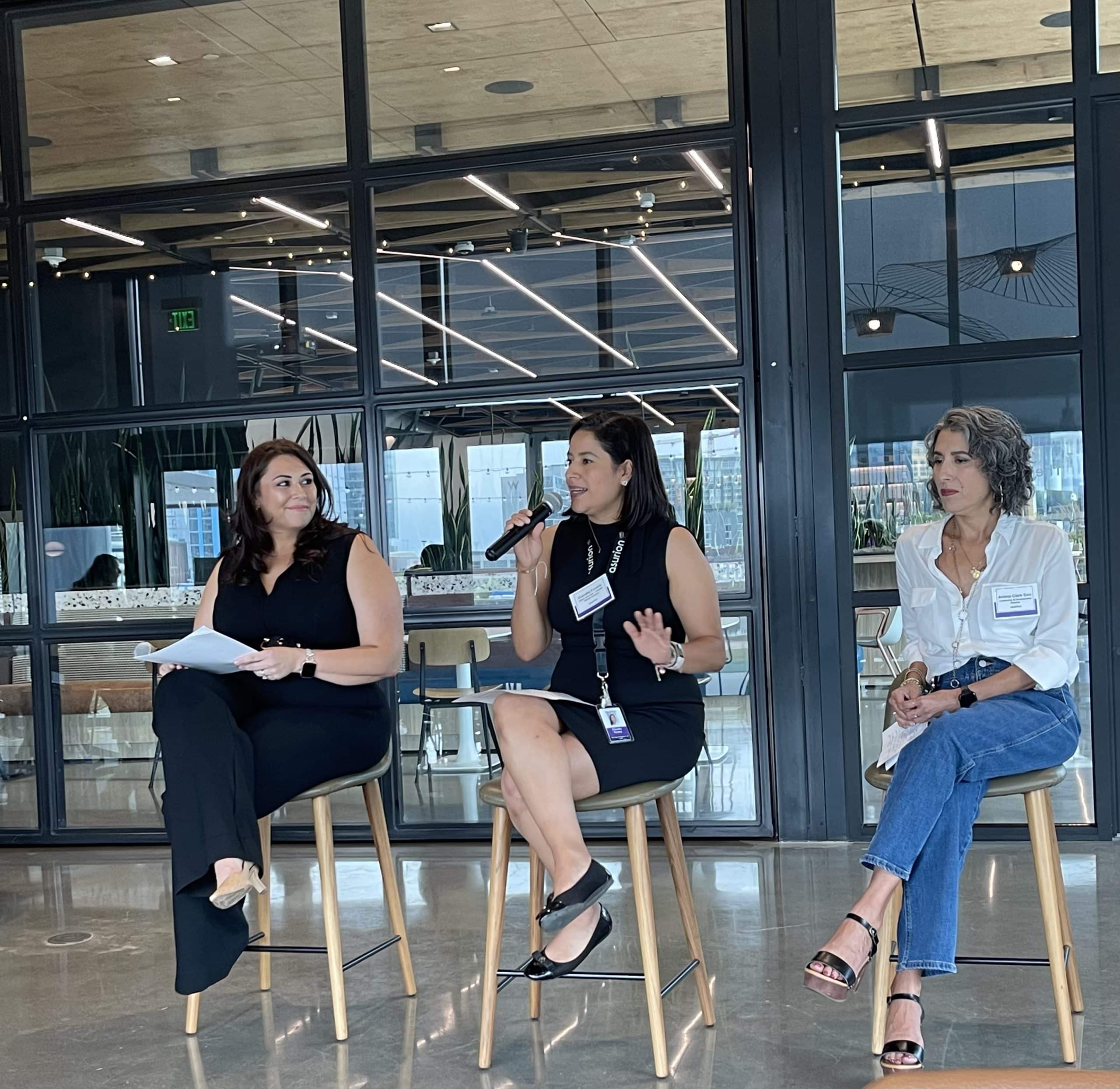
ECE Mentors Make a Difference
“Unlike freshmen with parents, siblings, or cousins who have gone to college, first-generation students are largely learning the pressures of staying above water in school without experienced guidance from home. These students often are unaware of what’s known as the “hidden curriculum”—the mix of bureaucratic know-how and sound study skills that can make or break a student’s first year in college.” -Mikhail Zinshteyn, The Chronicle of Evidence Based Mentoring.
A Stanford University study found that mentoring increased a first-generation student’s likelihood of advancing another year by 15%.
How to Become an ECE Mentor

What makes ECE mentors effective?
ECE mentors play a pivotal role in supporting our scholars. They offer both academic and emotional guidance, along with valuable career advice. By guiding scholars to set achievable goals and holding them accountable, mentors strengthen trust and build confidence, encouraging scholars to recognize and celebrate their progress.
Many ECE scholars face challenges, including but not limited to emotional, social, and financial barriers. Most of our first-generation scholars do not have the professional guidance that other college students may receive from family members or friends with experience in post-secondary education or career paths. This where the mentor comes in—by creating a relationship built on trust and professional growth.

Building a Relationship
Mentors and ECE scholars meet at least once per academic quarter, though additional check-ins are encouraged. Each quarterly meeting includes a discussion guide provided by ECE, but mentors and scholars are free to deepen their conversations beyond the assigned topics. A typical mentoring relationship should involve support with goal setting, time management strategies, career guidance, and advice on internships or job opportunities. Mentors may also assist with résumé and cover letter writing, offer encouragement for personal growth goals, and provide continuous motivation and support.
ECE Mentor FAQ
In Tennessee students from various immigrant backgrounds face barriers to accessing higher education due to ineligibility for financial aid (FAFSA) or student loans. As a result, they are often required to pay out-of-state tuition rates, making it more difficult for them to afford college. ECE helps scholars afford college by providing scholarship money, establishing partnerships with universities across the state, and robust programming aimed to support them through the collegiate experience.
ECE scholars are high-achieving, first-generation college students in Tennessee. These scholars applied and made it through a rigorous selection process to be awarded a $25,000, four-year college scholarship. ECE scholars are ambitious and dedicated to achieving their academic and career goals. Read more about our scholarship requirements and application process HERE. All ECE scholars are assigned a mentor in their third and fourth years of the ECE program, typically their junior and senior years in college.
ECE mentors are trusted individuals who support scholars throughout their last two years of college. They provide professional development and career readiness advice while helping students navigate challenges and stay on track for post-graduation success.
New mentors are recruited annually in the summer months (May-July), with required mentor orientation taking place at the end of July. Mentors are matched with their mentees in the month of August. Mentors and mentees meet at least once per academic quarter, with the ECE school year ending on May 15th. Mentors are then given the opportunity to renew their participation for the following academic year.
ECE mentors commit to one academic year at a time. Within that year, mentors will meet with their scholars at least once per academic quarter.
ECE staff consider mentors’ professional interests with the goals of the scholar. The ideal pair with a mentor who has experience and knowledge in the same line of work that the scholar wishes to pursue, although ECE is ultimately focused on creating successful mentoring relationships.
All ECE scholars are undergraduate students, though there is no specific age requirement. Scholars are paired with mentors in their third and fourth years in the ECE program, usually their junior and senior years in college.
Please register for an upcoming Mentor Information Session HERE.
